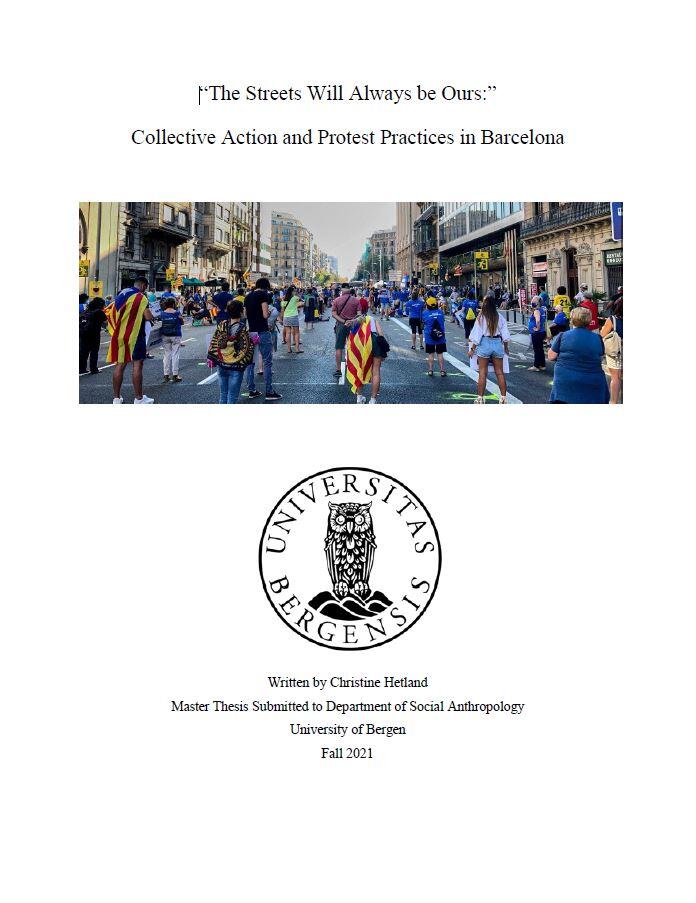“The Streets Will Always be Ours:” Collective Action and Protest Practices in Barcelona
Hovedinnhold
Master's thesis submitted at Department of Social Anthropology, autumn 2021.
By: Christine K. Hetland
Supervisor: Postdoctoral Fellow Marc Morell
By focusing on collective action in public space, and how it is used to organise collective actions, this thesis explores the streets in Barcelona's role in maintaining the political struggle between the Spanish State and the Catalan Generalitat, with a particular focus on the Catalan pro-independence movement. Through history, theory on social movements and ethnography I show how the streets, through the production of space are used to organise collective action and mass mobilisation, by using the anthropological axis of “event-everyday” together with “forms of resistance”. Strong social networks in Barcelona have developed a significant capacity to mass mobilise and has created a distinct protest culture with distinct protest practices that stimulate solidarity. I argue that the incidences in the street have a distinct role in the political struggle between the Spanish State and the Catalan Generalitat. And that the local governing institutions has a formative role in the ongoing contention by creating a specific “Barcelonan-ness” that draws on local culture, volunteerism, and a state of being in opposition. Collective action in Barcelona's streets shows how public space is used to shake up pre-established modes of behavior. By applying their bodies and protest practices, groups use public space to defend and revenge their city as a way to reconceptualise power relations and take back a sense of autonomy and control. Through information gained from interlocutors and participant observation, I show that neoliberal processes facilitate the struggle through processes such as gentrification. However, I also look at how social movements are part of neoliberal maintenance. Since the Spanish State has faced these issues by applying more force through surveillance and judicial forms of persecution, public space gets used to criticise and question issues regarding citizenship and the legitimacy of democracy.
